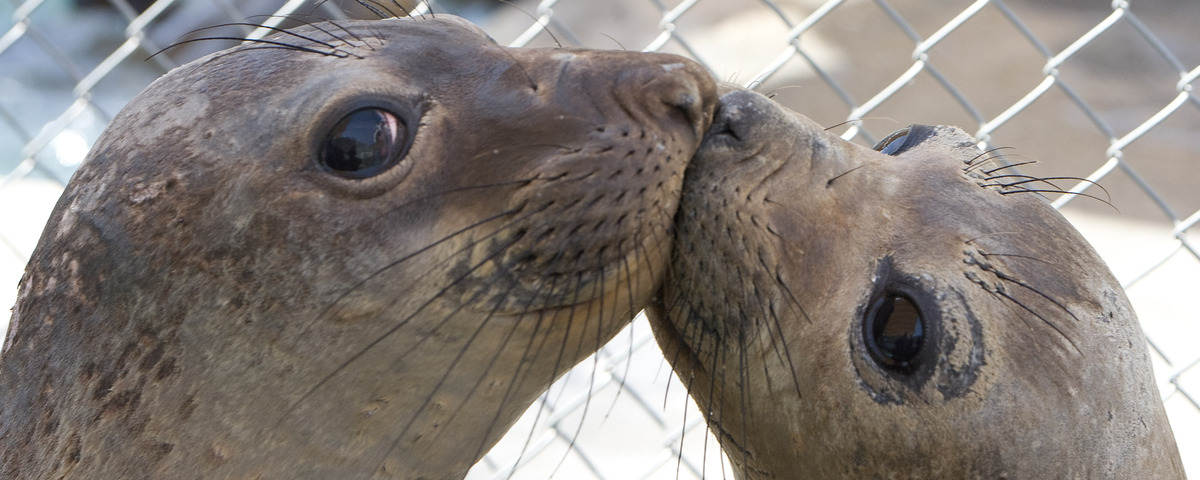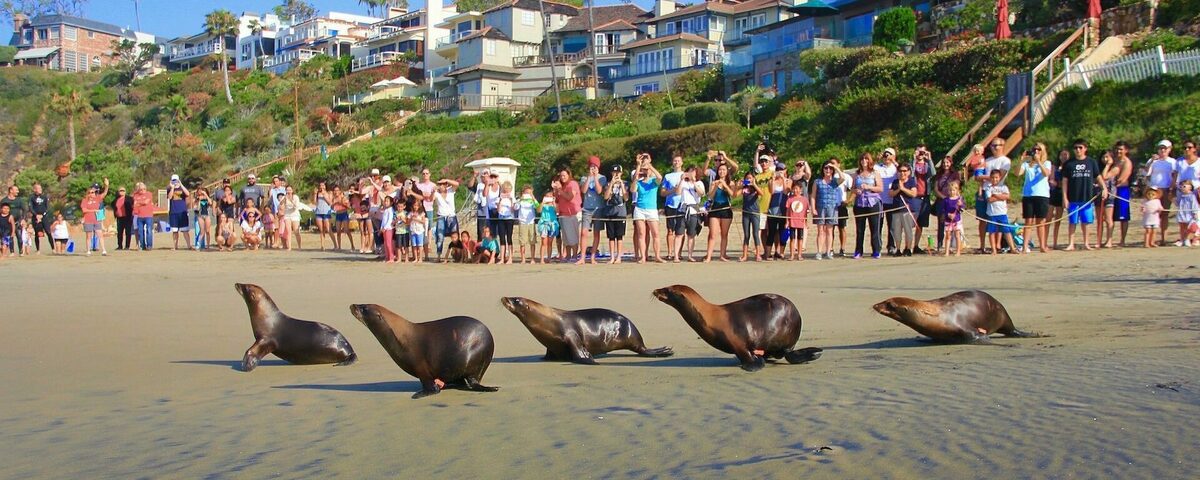The Pacific Marine Mammal Center rescues, rehabilitates and releases marine mammals and inspires ocean stewardship through research, education and collaboration. Pacific Marine Mammal Center is a non-profit 501(c)(3) organization.
Rescue
Unlike whales and dolphins, seals and sea lions don't have to remain in water in order to survive. The animals beach themselves to be warm and dry when feeling ill. They seek rest on land for a variety of reasons and are not always in need of intervention. Our staff is trained to recognize animals suffering from infections, malnourishment, pneumonia, gill net strangulation, etc. which can harm an animal's chance for survival.
Rehabilitation
When a "patient" is admitted, our staff performs all necessary procedures under the direction and protocols set by the Animal Care Director and our Veterinary Medical Director. During the course of rehabilitation, animals require a variety of treatments such as administration of antibiotics and subcutaneous fluids, tube feeding, force feeding, wound care, etc.
Most animals come in dehydrated and the most effective means to provide fluids and nourishment is through tube feeding. The process requires blending of fish, electrolytes, warm water, vitamins, and medication into a fish formula. This formula is fed to the animals by inserting a flexible tube into the stomach using large syringes. As soon as the animals are hydrated and stable, we wean them to eat whole fish.
Release
Once an animal has gained an optimal weight and is competing for food, it's ready for release. Prior to release, each animal is tagged with an identification number. The color-coded tags indicate the animal has been rehabilitated and helps identify the specific animal and care center in case the animal needs care in the future. We strive to return every one of our patients back to the wild once their care with us is complete.
Research
An important part of marine mammal recovery is ongoing research. Research is being done to find the pathological conditions that affect the marine mammals of Southern California. Only through this research are we able to discover the cause-effect relationships that can help us to understand the best means to rehabilitate our marine mammal patients.
Opportunities
Ongoing and User Campaigns
Calendar
Contact
Krysta Higuchi
Events and Public Relations Coordinator

